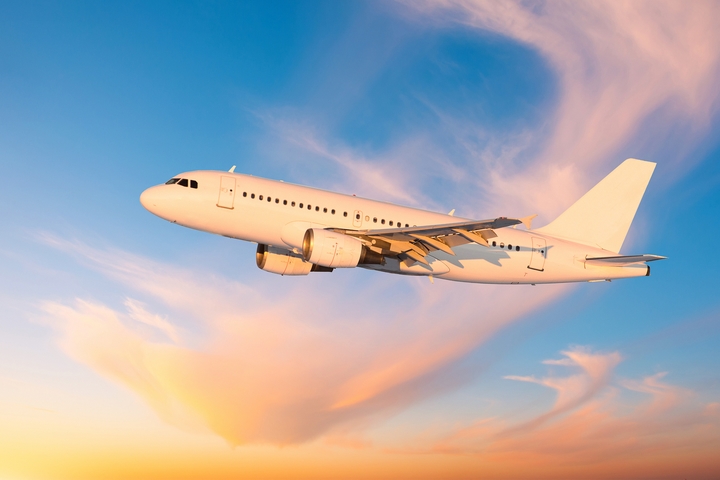
What makes a good pilot? There are certain skills common to the world’s most successful pilots that any person entering the field would want to have. A pilot confident in their skills and abilities doesn’t hesitate to maximize the safety of a flight, is quick to make key decisions, and is unafraid at handling difficult situations or emergencies on the fly.
Here are some pilot skills and qualities every pilot should have before stepping onto their first flight:
1. Decisiveness

Time, resource limitations, and emergencies mean a pilot has got to have decision-making skills. Pilots are there to lead, designate roles and responsibilities when necessary, and to be calm in emotionally challenging situations.
Everyone is looking to the pilot to make the decisions to keep everyone on the aircraft safe. A lot of the time, there is no one right decision or no clear ‘best decision’. Evidently, this means a pilot has got to use their experience and expertise to make the right move.
2. Quick-thinking

There’s sometimes a checklist to follow in an emergency but when there isn’t, quick-thinking counts. Overcoming a situation to maximize safety, a pilot may have to perform in a way they’re unaccustomed to. A wrong decision can lead to a fatal outcome.
A pilot has got to make their mind up quickly and be able to make the ‘right decision’ consistently. Diversions and forced landings are sometimes appropriate, depending on the emergency. Weather decisions in summertime, spring, and winter are also key. There’s little time to sit and debate.
3. Situational awareness

As a pilot, you need to know what is going on around you while flying an aircraft. Location, conditions, configuration, and energy state of the aircraft need to be noted and remembered. One needs to have environmental awareness relating to other aircrafts, weather, and terrain.
Control systems need to be carefully monitored, including modes like speed, altitude, heading, and the constant state of the aviation management system. Situational awareness is thoroughly covered in training, thankfully. This is one of those essential pilot skills that everyone flying a plane should have.
4. To maintain calm

No panic – the golden rule. Regardless of a pilot’s personality, they can’t panic. Without the ability to stay calm, it clouds judgment. Pilots need to be calm to deal with abnormalities or emergencies, to be confident in making decisions, and executing difficult tasks under pressure.
For some pilots, remaining calm is natural. For a lot, it isn’t. This is a learned skill that should be tackled in flight training. One’s inability to remain calm is a common reason why some would-be pilots do not end up making it through flight training.
5. Co-worker relationships

As a pilot, you aren’t out there on your own. Pilots regularly interact with co-workers as well as customers and passengers. On some flights for example, charter and corporate pilots will greet passengers prior to embarking on a journey. In some cases, airline pilots will even hear out complaints. Regardless, you need to have the interpersonal skills to be able to interact with colleagues and others effectively.
6. The right mindset

All the important pilot skills are underlined by having the right mindset and mentality for the job. Aviation is an industry filled with cocky, over-confident ‘expert pilots’. As a pilot, you need to be confident, have the right attitude, and self-discipline. A cocky pilot’s one that is bound to make mistakes which could cost a life. Don’t get ahead of yourself with the confidence.
Respect the risks involved with a flight, acknowledge your limitations, embrace the challenge of piloting, and don’t be timid either. A conservative pilot can be too apprehensive. Be confident in your own abilities and fly in the safest possible way.
7. Communication that’s clear and concise

The ability to communicate is one of the most crucial pilot skills. Roughly 80% of flight incidents or accidents trace back in some way to incorrect or incomplete information given in communication between the pilot and controller. Being able to communicate clearly and concisely can literally be a matter of life and death.
Speaking with a controller, a pilot should be able to describe purpose, when, what, how, and where. Accurate instruction is needed to maximize flight and landing safety.
8. Leadership

If you’re not here to lead, you won’t succeed as a pilot. Leadership is managing a cockpit effectively, using procedures and checklists in the correct way, consistently working to minimize errors or hazards, and to handle threats as they arise.
The pilot is also leading the flight, setting its tone. They are the go-to in an emergency. Leadership also hinges on respect. A team is unlikely to follow commands if they do not recognize and respect the pilot. Respect is earned and it comes naturally in time.
9. Team-building skills

A pilot’s the leader of a team. When a team isn’t working well and there’s a breakdown in communication in some way, this can result in accidents. Crew members aren’t individuals. They’re people working on a team. Pilots work closely with other pilots, air traffic controllers, and dispatchers.
There needs to be an atmosphere to coordinate action effectively, have honest feedback, and to encourage free flowing communication. Cross-checking each other’s work might also have a positive impact on flight safety and should be actively encouraged.


